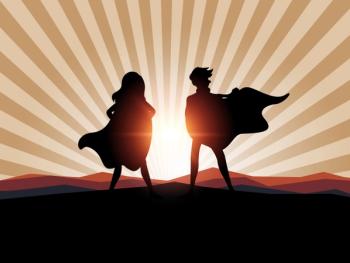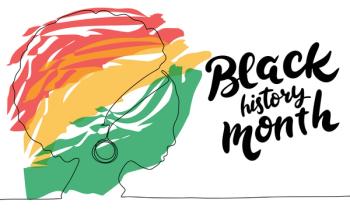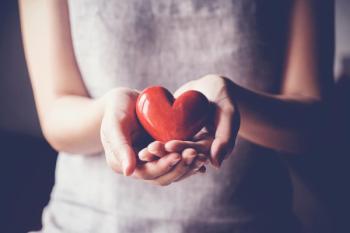
New Hope for the Future
What is the most hopeful holiday around the world—and why is it more important this year than ever?
HOLIDAY TRADITIONS
In this series, Holiday Traditions, we asked clinicians to share their favorite holiday traditions from both past and present. Here’s how they answered.
My favorite holiday is New Year’s Eve—and not only because this the most hopeful holiday around the world, when all eyes and hopes are turned to the future that promises to be better than today’s reality. My choice among all other deserving holidays is rooted in my childhood memories from living in Ukraine and Russia, where New Year’s Eve was also the only “normal” secular holiday that stood apart from other politicized occasions like May 1, November 7, or even March 8—International Women’s Day, which happened to be my birthday.
We did not celebrate Christmas, as that was considered to be a religious holiday and was celebrated in mid-January according to the Russian Orthodox Gregorian calendar. But New Year’s Eve had that magical fantasy that included a richly decorated “New Year Tree” and meeting the unforgettable duo of Father Frost (a long-lost twin of Santa Claus) and his granddaughter, the young and beautiful Snow Maiden.
The annual ritual also meant going to many holiday parties, exchanging gifts, getting together with friends and family for a holiday dinner, and toasting to a better tomorrow, wishing each other happiness, health, and success in the New Year. New Year’s dinner typically offered yummy dishes like hot meat and fruit pies, warm duck with apples and plums, and trimmings, all permeated with familiar smells and spices of the very secret family recipes attributed to the great-great-grandmother that were encored with gusto every year, and with great anticipation from those who cooked and from everyone who consumed.
Does this sound familiar? Yes, Christmas traditions were folded and camouflaged into a secular holiday to keep everyone going despite all odds of the Soviet reality.
I remember going figure skating with friends in the frozen public parks where loud happy music was played on December 31, along with elaborate fireworks. I remember going skiing on January 1 in order to start the New Year with a healthy routine. When I was a little girl, I also attended serial theatrical performances that celebrated Father Frost and Snow Maiden, both dressed in warm sparkly clothes with bags filled with presents and candy.
Of course, the best part of the celebration was that it coincided with the winter holidays when children and parents spent time together. The television and radio programs showed more favorite movies, concerts, and cartoons that replaced boring political news and documentaries. Everybody looked happier and younger, as if catching a chance to escape the dread of everyday worries.
Upon immigrating to the United States, I noticed that Christmas and other December religious holidays overshadowed New Year’s Eve celebrations, mostly because of Hallmark and the other commercial suspense that starts building up in July. However, New Year’s Eve is the sole holiday that offers a new start and new hope for the future for all of humanity and the planet Earth. This is especially important during these uncertain times as world faces nuclear “Armageddon,” along with extreme climate changes, hunger, and violence. It is important to see humanity in each of us regardless of religious or political affiliations.
We all just want to be happy. Happiness is our birthright! Being in the business of promoting happiness and wellbeing in our patients, we ought to remind our patients and ourselves to insist on experiencing happiness, ideally every day.
No matter how arbitrary the New Year’s Eve holiday is, humanity tends to project optimism onto the new beginnings fueled by its own remarkable resilience and belief in the overwhelming goodness of the world, despite any dire circumstances and challenges. With the increased interdependence of the world, this hope is shared across the world, even if for 1 night only.
After several years of being tested by the COVID-19 pandemic, unrelenting natural disasters, wars, political unrest, and violence, we are preparing to start a new year: 2023. May it be better than 2020 to 2022 for all of us!
Dr Lavretsky is a professor in residence in the Department of Psychiatry at UCLA in Los Angeles, California. Her work on geriatric depression and integrative mental health using mind-body interventions has received national attention, and she has won numerous grants supporting that work. She is the president-elect of the American Association for Geriatric Psychiatry, a distinguished fellow of the American Psychiatric Association and of the American Association for Geriatric Psychiatry, and a fellow of the American College of Neuropsychopharmacology. She is also on the board of Psychiatric Times™.
Newsletter
Receive trusted psychiatric news, expert analysis, and clinical insights — subscribe today to support your practice and your patients.







